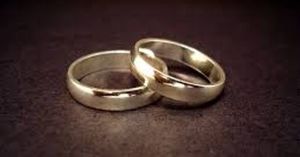“Banning weddings would constitute an unwarranted impingement on free expression,” declared a spokeswoman for the Association for Civil Rights in Israel.
 Jerusalem, December 27 – The week after video surfaced of extremist Jewish youth at a wedding, celebrating the murder of a Palestinian child, officials in Israel’s Chief Rabbinate are considering steps to curtail such incitement by prohibiting weddings.
Jerusalem, December 27 – The week after video surfaced of extremist Jewish youth at a wedding, celebrating the murder of a Palestinian child, officials in Israel’s Chief Rabbinate are considering steps to curtail such incitement by prohibiting weddings.
A Jerusalem wedding involving members of radical, sometimes-violent settler youths featured a video clip that showed several celebrants dancing with guns and a Molotov cocktail, with one dancer repeatedly stabbing a photo of Ali Dawabshe, a Palestinian toddler killed in firebomb attack on his home over the summer in the village of Duma. Israeli authorities strongly suspect that ‘hilltop youth’ were involved, and the wedding incident has brought to the surface the challenges of identifying, restraining, and preventing such extremists from further acts of mayhem. To that end, the Rabbinate has commissioned a feasibility study to determine whether banning weddings will avert recurrences of the incitement.
A spokesman for the rabbinate, Rabbi Barukh Wrongtree, said the study would examine whether banning weddings would help prevent such glorification of violence, and if so, to what degree. In addition, it will attempt to determine whether a similar ban on other religious celebrations such as bar and bat mitzva parties, circumcisions, and siyumim – ceremonies to mark the completion of a significant section of Talmudic study – would also contribute to a reduction in incitement.
“This is actually not an original idea,” explained Rabbi Wrongtree. “Last year, when a pair of terrorists attacked a Jerusalem synagogue during morning services, and hacked or stabbed six people to death, Meretz MKs were quick to point to Jewish prayer as the common denominator between the attack and an upsurge in violence on the Temple Mount. The legislators rightly called for such prayer to be banned, or perhaps restricted, to prevent further death and destruction.”
Human rights organizations were quick to denounce the idea. “Banning weddings would constitute an unwarranted impingement on free expression,” declared Hedda Pmyass, a spokeswoman for the Association for Civil Rights in Israel (ACRI). “While the vast majority of Israelis might disagree with some sentiments, we have no right to suppress such things merely because we disagree with them. That takes our society down a dangerous path.” Pmyass said ACRI would likely petition the High Court of Justice in the event that the Rabbinate does attempt to ban weddings or other celebrations in an effort to curb incitement.
“Democracy is a delicate thing, but of supreme importance,” she added. “We cannot in good conscience allow ourselves to suppress free expres- wait, we’re talking about Jewish, not Arab extremists? Hold up, that changes everything. Excuse me, I need to make a phone call.”




